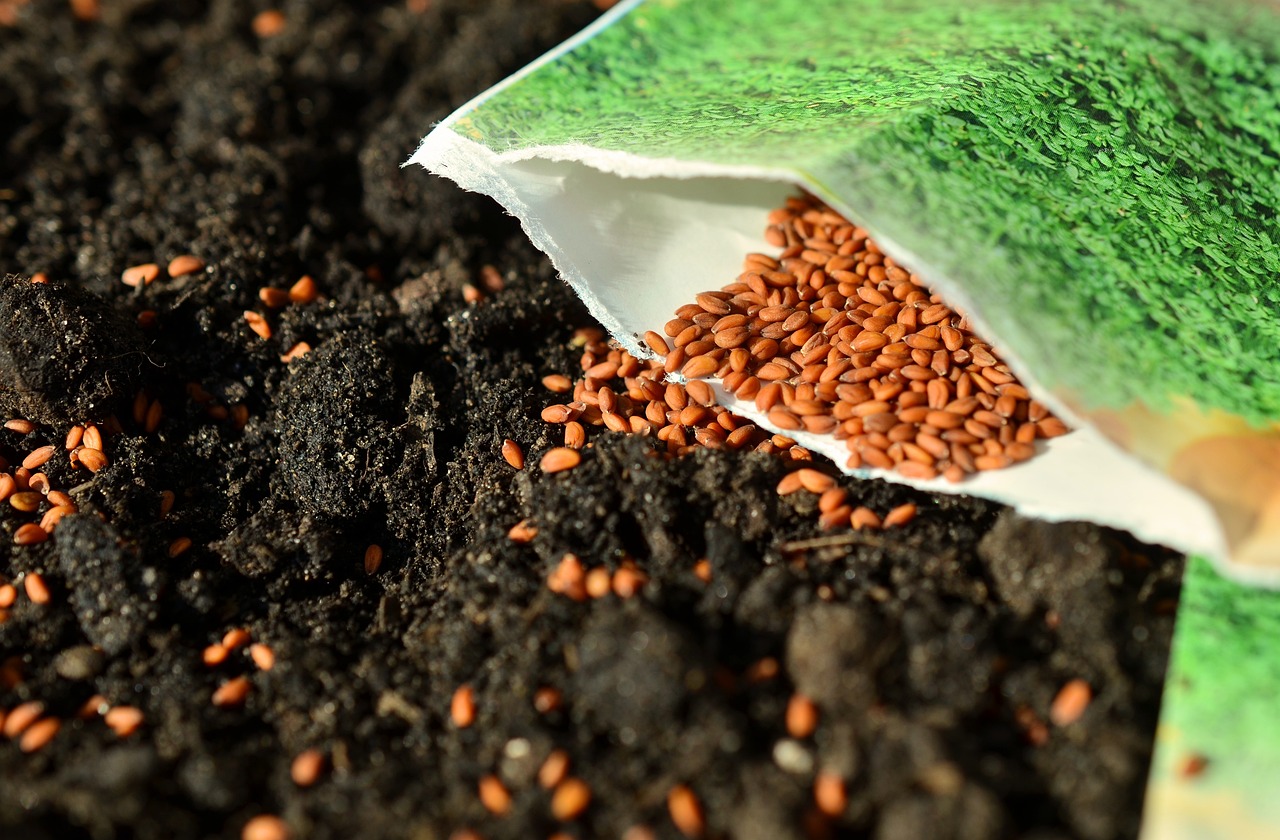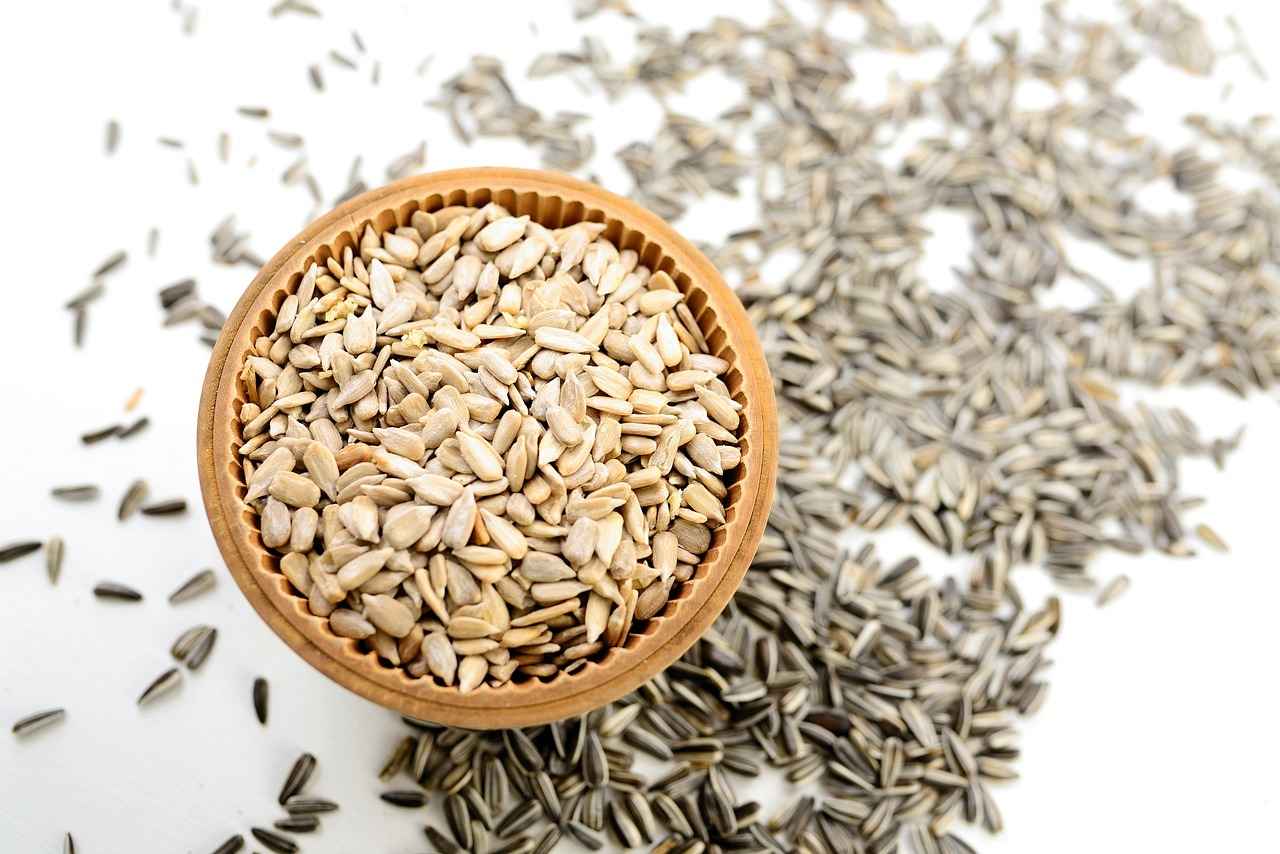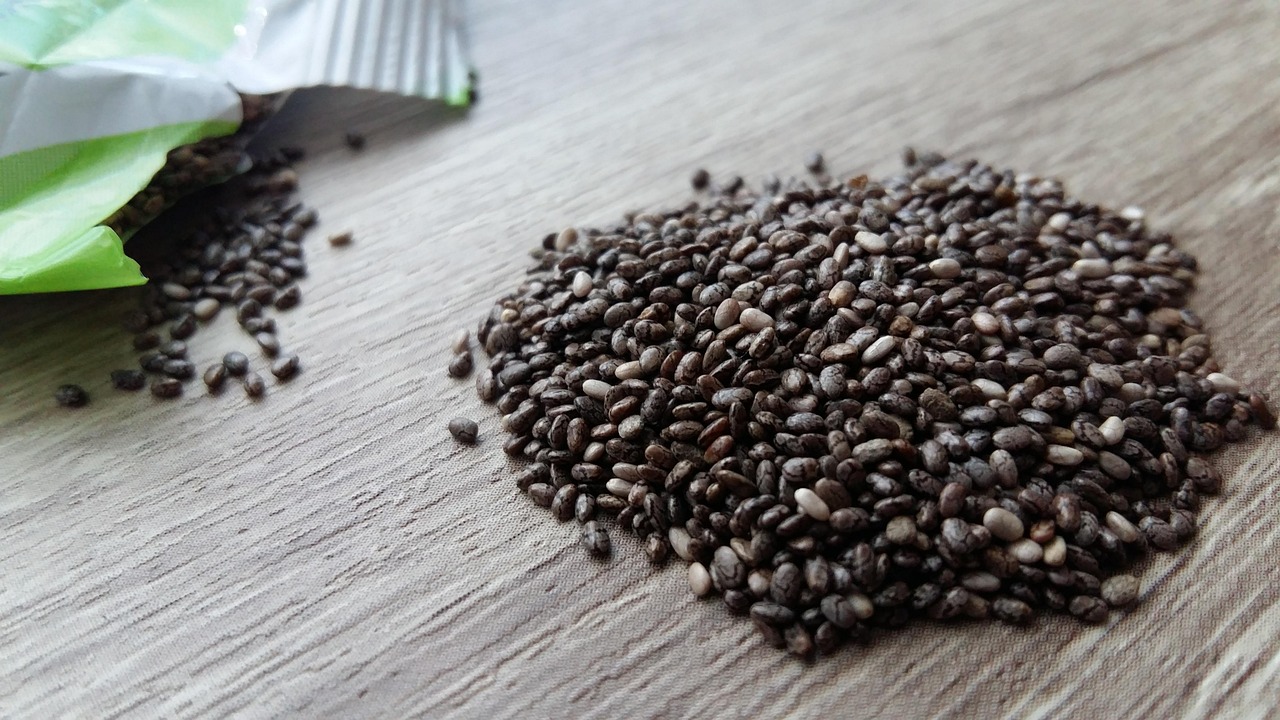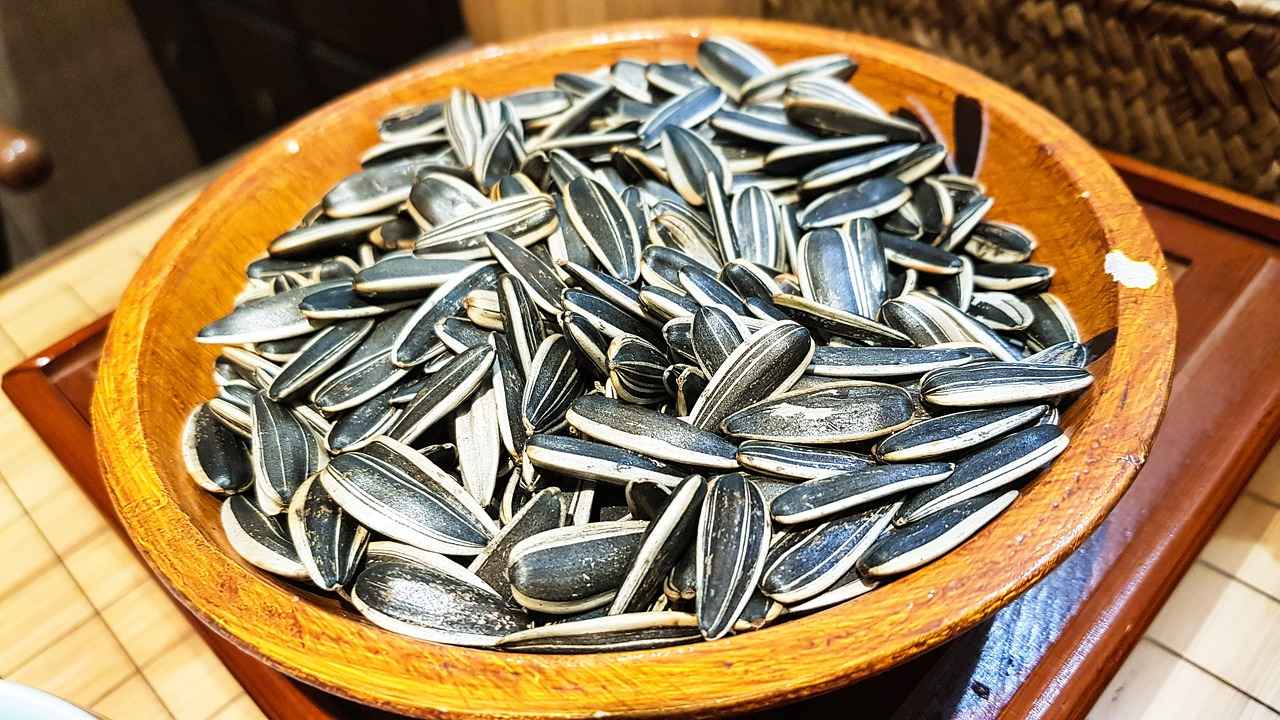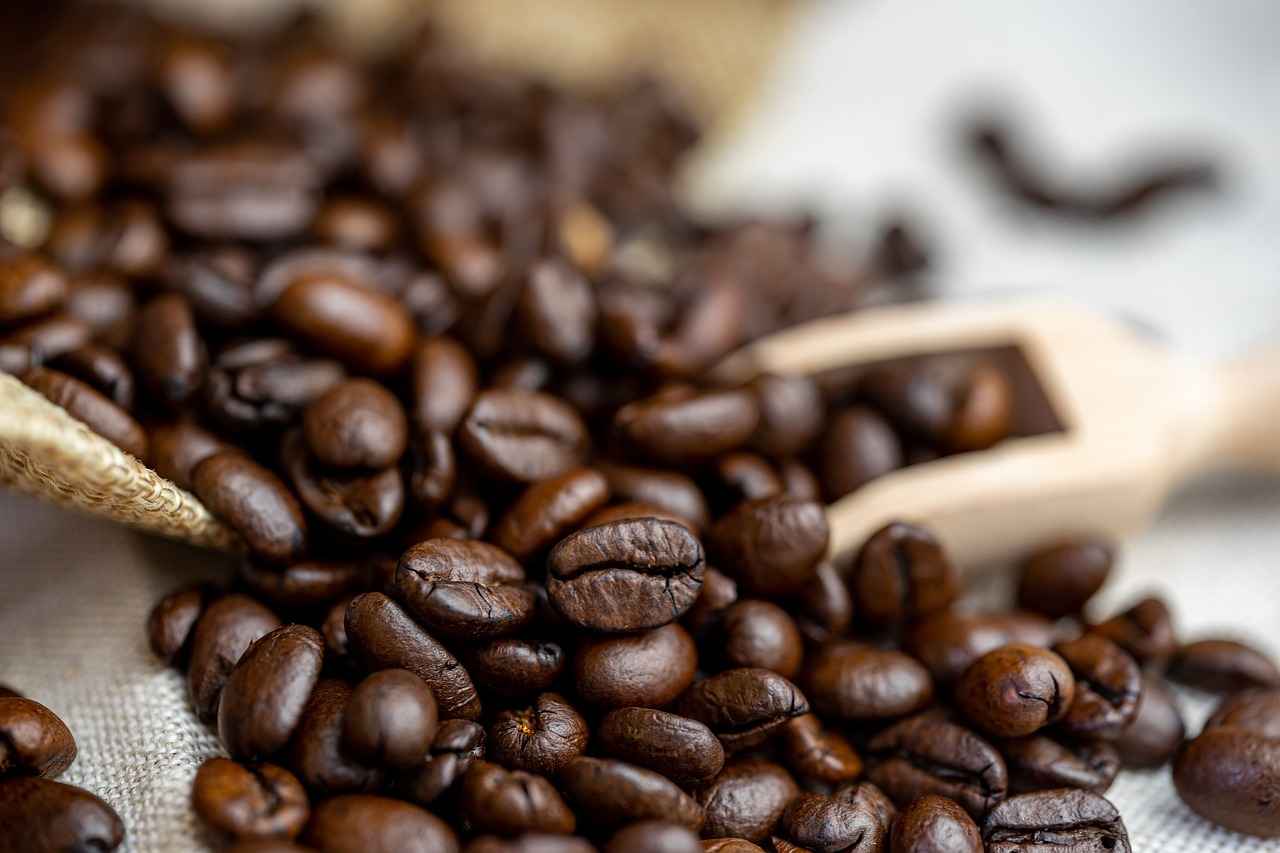This article delves into the potential side effects and dangers associated with chia seeds, offering insights into their nutritional benefits and guidelines for safe consumption. While chia seeds are celebrated for their health attributes, it is essential to understand how they may affect your body.
What Are Chia Seeds?
Chia seeds, sourced from the Salvia hispanica plant, are small, nutrient-dense seeds that have gained popularity as a superfood. They are packed with omega-3 fatty acids, fiber, protein, and various essential minerals, making them a valuable addition to a healthy diet.
How Can Chia Seeds Affect Digestion?
Chia seeds are known for their high fiber content, which can enhance digestive health. However, consuming them in excessive amounts can lead to gastrointestinal discomfort. It is crucial to understand proper serving sizes to maintain digestive wellness.
- Common Digestive Issues: Some individuals may experience bloating, gas, or constipation after consuming chia seeds, particularly if they fail to drink sufficient water.
- Minimizing Digestive Discomfort: To mitigate these effects, it is advisable to start with small quantities and gradually increase your intake while ensuring adequate hydration.
Can Chia Seeds Cause Allergic Reactions?
Though rare, some individuals may have an allergy to chia seeds. Recognizing the signs of an allergic reaction is vital for anyone considering adding them to their diet.
- Symptoms of Allergy: Symptoms can include itching, hives, or gastrointestinal distress. If these occur, it is important to discontinue use and consult a healthcare professional.
- Identifying Potential Allergens: Discussing potential allergies with a healthcare provider is recommended, especially for those with existing allergies to similar seeds.
Are There Risks for Individuals with Certain Conditions?
Certain health conditions may heighten the side effects of chia seeds. Understanding these risks is essential for making informed dietary choices.
- Who Should Avoid Chia Seeds? Individuals with gastrointestinal disorders, such as irritable bowel syndrome (IBS), or those on blood-thinning medications should approach chia seeds cautiously and seek medical advice.
- Pregnant or Nursing Women: It is advisable for pregnant or nursing women to consult healthcare professionals before consuming chia seeds to ensure safety for both mother and child.
How Do Chia Seeds Interact with Medications?
Chia seeds may interact with certain medications, particularly those that affect blood sugar levels or blood clotting. Being aware of these interactions is crucial for safe consumption.
- Affected Medications: Anticoagulants and diabetes medications may have altered effects when combined with chia seeds. Always discuss dietary changes with your healthcare provider if you are on medication.
- Precautions to Take: Keeping a detailed list of all medications and discussing them with a healthcare professional can help mitigate risks associated with chia seed consumption.
How to Incorporate Chia Seeds Safely?
Incorporating chia seeds into your diet can be beneficial when done appropriately. Understanding safe consumption practices ensures you reap the health benefits without adverse effects.
- Recommended Serving Sizes: The typical recommended serving size for chia seeds is about 1-2 tablespoons per day, which can provide nutritional benefits while minimizing potential side effects.
- Preparation Tips: Soaking chia seeds in water or other liquids before consumption can help reduce the risk of digestive issues and enhance nutrient absorption.
What Are the Nutritional Benefits of Chia Seeds?
Despite their potential side effects, chia seeds offer numerous nutritional benefits, including high fiber content, omega-3 fatty acids, and essential minerals, making them a popular superfood choice.
- Support for Heart Health: Chia seeds are rich in omega-3 fatty acids, known to support heart health by reducing inflammation and lowering cholesterol levels.
- Aiding in Weight Management: The high fiber content in chia seeds can promote satiety, potentially assisting in weight management by helping individuals feel fuller for longer periods.
What Are Alternative Seeds to Consider?
If you experience adverse effects from chia seeds, there are alternative seeds that offer similar nutritional benefits without the associated risks.
- Benefits of Flaxseeds: Flaxseeds are an excellent alternative, providing similar omega-3 fatty acids and fiber, while being generally easier on the digestive system for many individuals.
- Comparison with Pumpkin Seeds: Pumpkin seeds are another nutritious option, offering protein, healthy fats, and essential minerals, making them a versatile addition to a balanced diet.
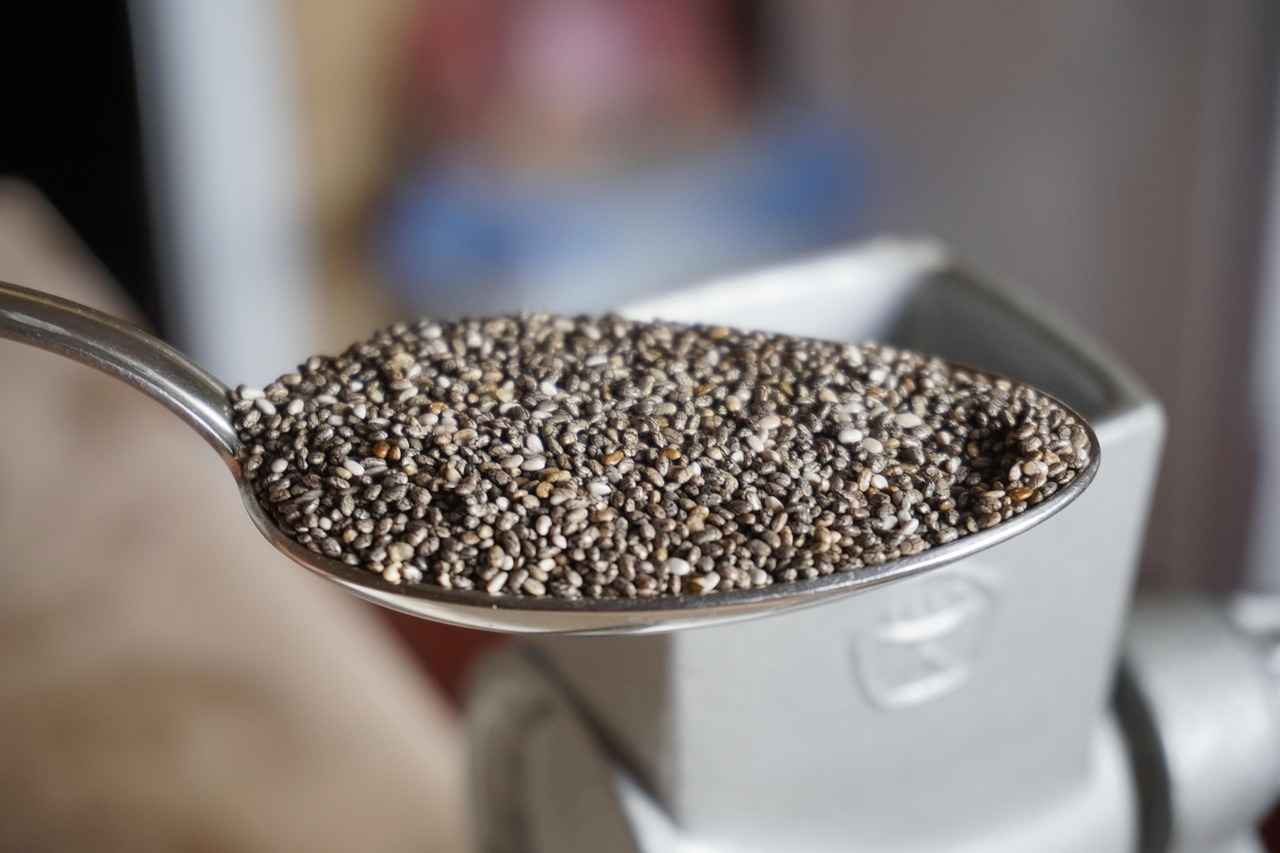
What Are Chia Seeds?
Chia seeds, derived from the Salvia hispanica plant, are tiny yet powerful seeds that have gained significant attention in the health and wellness community. These seeds are renowned for their impressive nutritional profile, boasting a rich source of omega-3 fatty acids, fiber, and a variety of antioxidants. Their versatility makes them a popular addition to various dishes, from smoothies to baked goods.
Chia seeds are packed with essential nutrients, making them a superfood in many diets. A typical serving of chia seeds (about 28 grams or 2 tablespoons) contains:
- Omega-3 Fatty Acids: Approximately 5 grams, which are crucial for heart and brain health.
- Fiber: About 11 grams, contributing to digestive health and promoting a feeling of fullness.
- Protein: Roughly 4 grams, aiding in muscle repair and growth.
- Calcium: Around 18% of the daily recommended intake, supporting bone health.
- Magnesium: Contributes to over 300 biochemical reactions in the body.
The health benefits of chia seeds are extensive. Here are several key advantages:
- Heart Health: The high content of omega-3 fatty acids helps reduce inflammation and lower cholesterol levels, promoting overall cardiovascular health.
- Digestive Health: The soluble fiber in chia seeds absorbs water, expanding in the stomach and aiding in digestion.
- Weight Management: Their ability to absorb liquid and swell can help control appetite, making them a popular choice for those looking to manage their weight.
- Blood Sugar Control: Chia seeds may help stabilize blood sugar levels, making them beneficial for individuals with diabetes.
Adding chia seeds to your diet is simple and can enhance the nutritional value of your meals:
- Soaked Chia Seeds: Soaking chia seeds in water or milk for a few hours creates a gel-like consistency that can be added to smoothies or puddings.
- Sprinkled on Foods: Sprinkle chia seeds on salads, yogurt, or oatmeal for an added crunch and nutrition boost.
- Baking: Incorporate chia seeds into baked goods such as muffins and bread for added fiber and nutrition.
While chia seeds are generally safe for most people, there are some considerations to keep in mind:
- Digestive Issues: Consuming large amounts of chia seeds without adequate hydration can lead to gastrointestinal discomfort.
- Allergic Reactions: Although rare, some individuals may experience allergic reactions to chia seeds.
- Medication Interactions: Chia seeds may interact with certain medications, especially those affecting blood sugar and blood clotting.
In summary, chia seeds are a nutrient-dense addition to a balanced diet, offering numerous health benefits. However, it is essential to consume them in moderation and stay hydrated to avoid potential side effects. Always consult with a healthcare provider if you have specific health concerns or conditions.
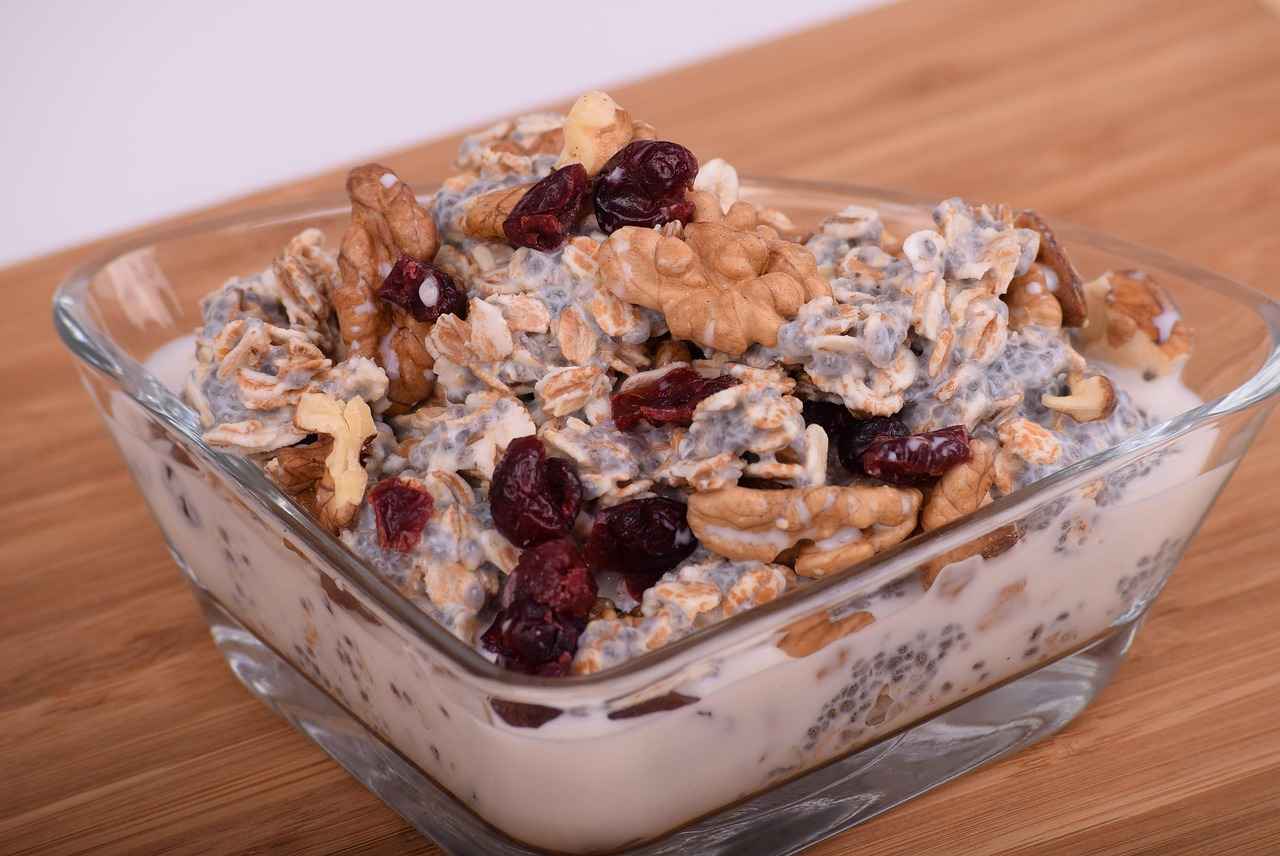
How Can Chia Seeds Affect Digestion?
Chia seeds have gained immense popularity as a health food, often touted for their numerous benefits. However, it is essential to understand how they can affect digestion, especially for those who are new to incorporating them into their diets. This section delves into the effects of chia seeds on digestive health, along with practical tips for safe consumption.
While chia seeds are recognized for their high fiber content, which promotes digestive health, they can also lead to gastrointestinal discomfort if consumed in excess. Understanding the appropriate serving sizes is crucial to avoid potential digestive issues.
Chia seeds are packed with soluble fiber, which can help regulate bowel movements and improve overall gut health. The fiber in chia seeds absorbs water, forming a gel-like substance that aids in slowing digestion and promoting a feeling of fullness. This can be beneficial for individuals looking to manage their weight or enhance their digestive health.
- Bloating: Excessive consumption can lead to bloating as the seeds expand in the digestive tract.
- Gas: Some individuals may experience increased gas production due to the fermentation of fiber in the gut.
- Constipation: Without adequate hydration, the high fiber content can contribute to constipation.
To minimize the risk of digestive discomfort, it is advisable to start with small amounts, approximately 1 tablespoon per day, and gradually increase as your body adjusts. This practice allows your digestive system to adapt to the added fiber without overwhelming it.
When adding chia seeds to your diet, hydration plays a critical role. Since chia seeds absorb a significant amount of liquid, it is essential to drink plenty of water throughout the day. This helps to facilitate digestion and prevent the seeds from becoming too gelatinous in the gastrointestinal tract.
For some individuals, particularly those with certain digestive disorders, chia seeds may not be suitable. Conditions like Irritable Bowel Syndrome (IBS) can be exacerbated by high fiber intake. It is crucial for individuals with such conditions to consult with a healthcare professional before incorporating chia seeds into their diet.
Soaking chia seeds in water or other liquids before consumption can significantly reduce the risk of digestive issues. This process not only makes them easier to digest but also enhances nutrient absorption. A simple way to prepare them is to mix 1 tablespoon of chia seeds with 1 cup of water and let it sit for at least 30 minutes before consuming.
Individuals who experience discomfort after consuming chia seeds should be aware of the signs of digestive distress, which may include:
- Bloating
- Abdominal pain
- Excessive gas
- Constipation
If these symptoms occur, it may be necessary to reduce the intake of chia seeds or seek advice from a healthcare provider. Monitoring how your body responds to chia seeds can help you enjoy their benefits while minimizing adverse effects.
What Are Common Digestive Issues?
Chia seeds have gained immense popularity due to their numerous health benefits, but they can also lead to certain digestive issues for some individuals. Understanding these potential side effects is essential for anyone looking to incorporate chia seeds into their diet safely.
While chia seeds are known for their high fiber content, which can promote healthy digestion, they can also cause discomfort if not consumed properly. Some individuals may experience bloating, gas, or constipation after consuming chia seeds, particularly if they do not drink enough water. This is largely due to the seeds’ ability to absorb liquid and expand in the digestive tract. Without adequate hydration, the seeds can lead to a blockage or discomfort in the gastrointestinal system.
When incorporating chia seeds into your diet, staying hydrated is crucial. Chia seeds can absorb up to 12 times their weight in water, which means they require sufficient liquid to facilitate their passage through the digestive system. If you consume chia seeds without drinking enough water, the seeds may swell in your stomach, causing feelings of fullness, discomfort, or even constipation.
- Start Small: Begin with a small serving size, such as 1 teaspoon, and gradually increase it as your body adjusts.
- Soak Before Consumption: Soaking chia seeds in water or other liquids for at least 30 minutes before eating can help them expand and become easier to digest.
- Drink Plenty of Water: Aim to drink at least 8-10 glasses of water a day, especially when consuming chia seeds.
Recognizing the signs of digestive discomfort is important for anyone consuming chia seeds. Symptoms may include:
- Bloating
- Gas
- Stomach cramps
- Constipation
If you experience any of these symptoms, it may be wise to reduce your intake of chia seeds or consult a healthcare professional.
Individuals with pre-existing gastrointestinal issues, such as irritable bowel syndrome (IBS), should approach chia seeds with caution. These conditions can exacerbate the digestive discomfort associated with chia seed consumption. Additionally, those on medications that affect digestion or hydration should also consult with a healthcare provider before adding chia seeds to their diet.
Despite the potential for digestive issues, chia seeds offer numerous health benefits, including high levels of omega-3 fatty acids, fiber, and antioxidants. When consumed correctly, they can support heart health, aid in weight management, and promote overall well-being. Ensuring proper hydration and starting with small amounts can help mitigate the risks associated with their consumption.
In summary, while chia seeds can contribute positively to your diet, it is essential to be aware of the potential digestive issues they may cause. By staying hydrated, starting with small servings, and monitoring your body’s response, you can enjoy the benefits of chia seeds without the unwanted side effects.
How to Minimize Digestive Discomfort?
Chia seeds have gained immense popularity as a superfood, thanks to their impressive nutritional profile. However, for some individuals, incorporating these tiny seeds into their diet can lead to digestive discomfort. Understanding how to minimize these issues is essential for enjoying the benefits of chia seeds without the unpleasant side effects.
When introducing chia seeds into your diet, it is crucial to start with small amounts. Begin with just a teaspoon or a small tablespoon of chia seeds. This allows your body to adjust to the added fiber and other components without overwhelming your digestive system. Gradually increase the amount over time, observing how your body reacts.
Hydration plays a vital role in the digestion of chia seeds. When chia seeds are mixed with liquid, they absorb up to 10-12 times their weight in water, forming a gel-like substance. This property can be beneficial, but it also means that sufficient fluid intake is necessary to prevent potential digestive issues.
- Drink plenty of water throughout the day.
- Aim for at least 8-10 glasses of water daily, especially when consuming chia seeds.
- Consider soaking chia seeds in water or other liquids before consumption to aid digestion.
Chia seeds are rich in fiber, which is excellent for digestive health but can be problematic in excessive amounts. If you are not accustomed to a high-fiber diet, suddenly adding chia seeds can lead to bloating, gas, or even constipation. To avoid this:
- Gradually increase your fiber intake from various sources.- Balance chia seeds with other fiber-rich foods like fruits, vegetables, and whole grains.
Everyone’s digestive system is different. Some individuals may have sensitivities to chia seeds or other high-fiber foods. Pay attention to your body’s signals and adjust your intake accordingly. If you experience discomfort, consider reducing the amount or eliminating chia seeds from your diet temporarily.
If you have a history of digestive issues or specific health conditions, it is wise to consult a healthcare professional before adding chia seeds to your diet. They can provide personalized advice based on your unique health needs and help you determine the right amount for you.
The way you prepare chia seeds can significantly impact their digestibility. Here are some methods to consider:
- Soaking: Soak chia seeds in water, juice, or smoothies for at least 30 minutes before consuming.
- Blending: Add soaked chia seeds to smoothies for a creamy texture and easier digestion.
- Cooking: Incorporate chia seeds into oatmeal or baked goods to soften them and make them easier to digest.
While chia seeds are nutritious, moderation is key. The typical recommended serving size is about 1-2 tablespoons per day. This amount provides health benefits without overwhelming your digestive system. Always listen to your body and adjust your portion sizes based on how you feel.
By following these guidelines, you can enjoy the numerous health benefits of chia seeds while minimizing the risk of digestive discomfort. Remember that a gradual approach, adequate hydration, and mindful preparation can make all the difference in incorporating these powerful seeds into your diet.

Can Chia Seeds Cause Allergic Reactions?
Chia seeds have gained popularity as a superfood, known for their numerous health benefits. However, it is essential to acknowledge that, though rare, some individuals may experience allergic reactions to these tiny seeds. Understanding the potential for allergies is crucial for anyone considering incorporating chia seeds into their diet.
Recognizing the symptoms of a chia seed allergy can help individuals make informed dietary choices. Common signs of an allergic reaction may include:
- Itching or Rash: This can manifest as hives or general skin irritation.
- Gastrointestinal Distress: Symptoms such as nausea, vomiting, or diarrhea may occur.
- Respiratory Issues: Some individuals may experience difficulty breathing or wheezing.
If any of these symptoms occur after consuming chia seeds, it is important to discontinue use immediately and consult a healthcare professional for further evaluation.
Individuals with existing allergies, particularly to other seeds like flaxseed or sesame, may be at a higher risk of developing a chia seed allergy. It is advisable for these individuals to approach chia seeds with caution and consider consulting a healthcare provider before introducing them into their diet.
If there is a suspicion of a chia seed allergy, medical professionals may recommend an allergy test. This can include:
- Skin Prick Test: A small amount of chia seed extract is applied to the skin to observe for reactions.
- Blood Test: This test measures the presence of specific antibodies that indicate an allergic response.
These tests can provide clarity on whether chia seeds should be avoided.
In the event of an allergic reaction, it is crucial to take immediate action:
1. Discontinue consumption of chia seeds.2. Seek medical attention if symptoms are severe.3. Consider carrying an epinephrine auto-injector if you have a history of severe allergies.
For those without known allergies, incorporating chia seeds can be beneficial. Here are some tips:
- Start Small: Begin with a small amount to see how your body reacts.
- Stay Hydrated: Drink plenty of water, as chia seeds absorb liquid and can cause digestive discomfort if not properly hydrated.
- Consult a Professional: If you have any concerns about allergies, discussing your dietary plans with a healthcare provider can provide peace of mind.
If you suspect a chia seed allergy or experience adverse effects, consider alternatives that offer similar health benefits:
- Flaxseeds: A great source of omega-3 fatty acids and fiber, generally easier on the digestive system.
- Hemp Seeds: Rich in protein and healthy fats, they can be a nutritious substitute.
- Pumpkin Seeds: Loaded with essential minerals and protein, they make a versatile addition to various dishes.
In conclusion, while chia seeds are a nutritious addition to many diets, it is essential to be aware of the potential for allergic reactions. By recognizing the signs of an allergy and taking appropriate precautions, individuals can safely enjoy the benefits of chia seeds or explore suitable alternatives.
What Symptoms Indicate an Allergy?
Chia seeds, celebrated for their numerous health benefits, can also pose risks for a minority of individuals who may experience allergic reactions. Understanding the symptoms of a chia seed allergy is crucial for anyone considering adding these tiny powerhouses to their diet.
Symptoms of a chia seed allergy can manifest in various ways, and recognizing these signs early is essential for your health. Common allergic reactions include:
- Itching: This can occur on various parts of the body, particularly in areas that come into direct contact with chia seeds.
- Hives: Raised, red welts on the skin can appear, causing discomfort and indicating an allergic response.
- Gastrointestinal Distress: Symptoms may include nausea, vomiting, diarrhea, or abdominal cramps, which can occur shortly after consuming chia seeds.
- Swelling: Some individuals may experience swelling in the face, lips, or throat, which can be a sign of a more severe allergic reaction.
If you experience any of these symptoms after consuming chia seeds, it is crucial to discontinue use immediately. Consulting a healthcare professional is highly recommended, especially if symptoms are severe or persist.
While chia seed allergies are considered rare, they can occur, particularly in individuals with a history of allergies to other seeds, such as flaxseed or sesame. It is essential to approach chia seeds with caution if you have known sensitivities to similar foods.
If you suspect that you may be allergic to chia seeds, it is advisable to take the following steps:
- Stop Consumption: Immediately stop consuming chia seeds and any products containing them.
- Consult a Healthcare Professional: Seek advice from a doctor or allergist, who may recommend allergy testing to confirm the allergy.
- Read Labels: Always check ingredient labels on packaged foods to ensure chia seeds are not present, especially in health foods or snacks.
Before incorporating chia seeds into your diet, it is wise to discuss potential allergies with a healthcare provider, especially if you have existing allergies to similar seeds. They can guide you on how to proceed safely.
If you experience adverse effects from chia seeds, consider alternatives that offer similar nutritional benefits without the associated risks. Options include:
- Flaxseeds: Packed with omega-3 fatty acids and fiber, flaxseeds are a great substitute for chia seeds.
- Pumpkin Seeds: These seeds are rich in protein and essential minerals, providing a nutritious alternative.
In summary, while chia seeds offer numerous health benefits, it is important to be aware of the potential for allergic reactions. Recognizing the symptoms early and consulting with healthcare professionals can help ensure safe consumption and maintain your overall health.
How to Identify Potential Allergens?
Before incorporating chia seeds into your diet, it is crucial to assess any potential allergies you may have. Chia seeds, like many other foods, can trigger allergic reactions in some individuals. This is particularly important for those with existing sensitivities to other seeds, such as flaxseed or sesame seeds.
- Consult a Healthcare Provider: It is advisable to discuss your plans to add chia seeds to your diet with a healthcare professional, especially if you have a history of allergies. They can provide personalized advice and recommend allergy testing if necessary.
- Know the Symptoms: Familiarize yourself with the common symptoms of an allergic reaction. These can include itching, hives, swelling, and gastrointestinal issues such as nausea or diarrhea. Recognizing these symptoms early can help you take prompt action.
- Start Slowly: If you decide to try chia seeds, start with a small amount. This allows you to monitor your body’s reaction without overwhelming your system. Gradually increase the quantity to see how your body responds.
- Keep a Food Diary: Documenting what you eat and any symptoms that arise can be a valuable tool in identifying potential allergens. This record can help you and your healthcare provider pinpoint any adverse reactions.
- Consider Cross-Reactivity: If you are allergic to certain seeds, be aware that cross-reactivity may occur. This means that if you are allergic to one type of seed, you may also react to chia seeds. Discuss this possibility with your healthcare provider.
It is essential to approach chia seeds with caution, particularly if you have known allergies. While they offer numerous health benefits, such as high fiber content and omega-3 fatty acids, the risk of an allergic reaction should not be underestimated.
In addition to allergies, consider other factors that may affect your decision to consume chia seeds. For instance, individuals with certain medical conditions, such as irritable bowel syndrome (IBS) or those on specific medications, should also consult their healthcare provider before adding chia seeds to their diet.
By taking these precautions and being informed about potential allergens, you can enjoy the benefits of chia seeds safely. Always prioritize your health and well-being by seeking professional guidance when making dietary changes.
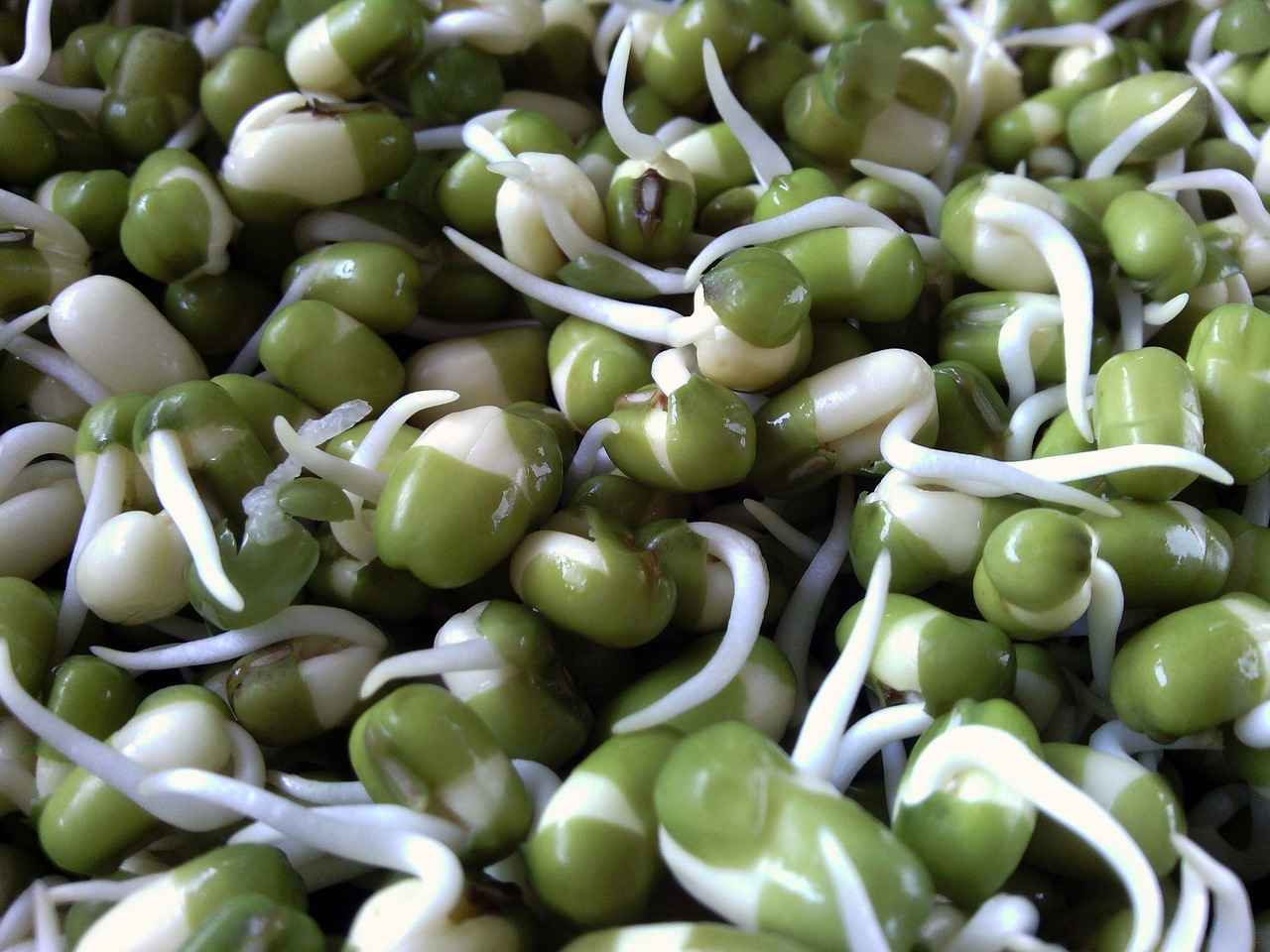
Are There Risks for Individuals with Certain Conditions?
Chia seeds are often celebrated for their numerous health benefits, including high levels of omega-3 fatty acids, fiber, and antioxidants. However, individuals with specific health conditions may face increased risks when consuming these tiny seeds. Understanding these potential risks is crucial for making informed dietary choices.
While chia seeds can be a healthy addition to many diets, certain groups should approach them with caution. This includes:
- Individuals with Gastrointestinal Disorders: People suffering from conditions like irritable bowel syndrome (IBS) or inflammatory bowel disease (IBD) may experience exacerbated symptoms, such as bloating or cramping, when consuming chia seeds. The high fiber content, while beneficial for many, can lead to discomfort in sensitive individuals.
- Those on Blood-Thinning Medications: Chia seeds can have a blood-thinning effect due to their omega-3 fatty acids. For individuals on anticoagulants, such as warfarin, this can lead to an increased risk of bleeding. It is essential to consult a healthcare provider before adding chia seeds to the diet.
- Pregnant and Nursing Women: Although chia seeds are generally safe, pregnant and nursing women should discuss their dietary choices with their healthcare provider to ensure they do not pose any risks to their health or their baby’s health.
Awareness of potential symptoms can help individuals identify adverse reactions to chia seeds. Some common signs include:
- Bloating and Gas: These symptoms can occur if chia seeds are consumed in large quantities or without adequate hydration.
- Allergic Reactions: Though rare, some individuals may experience itching, hives, or gastrointestinal distress after consuming chia seeds. If these symptoms arise, it is important to discontinue use and seek medical advice.
- Digestive Issues: Constipation or diarrhea may occur, especially if chia seeds are introduced into the diet too quickly.
To safely incorporate chia seeds into your diet, consider the following strategies:
- Start Slowly: Begin with small amounts to gauge your body’s response. Gradually increase your intake while monitoring for any adverse reactions.
- Stay Hydrated: Since chia seeds absorb water, it’s crucial to drink plenty of fluids to prevent digestive discomfort.
- Consult Your Healthcare Provider: Before making significant changes to your diet, especially if you have existing health conditions, discussing these changes with a healthcare professional can provide personalized guidance.
If you find that chia seeds cause discomfort or adverse effects, consider alternatives that offer similar nutritional benefits:
- Flaxseeds: These are rich in omega-3 fatty acids and fiber and may be easier to digest for some individuals.
- Pumpkin Seeds: A nutritious option that provides protein, healthy fats, and essential minerals without the same digestive concerns.
In summary, while chia seeds can offer numerous health benefits, individuals with certain health conditions should proceed with caution. By understanding the potential risks and taking appropriate precautions, you can make informed choices that align with your health needs.
Who Should Avoid Chia Seeds?
Chia seeds have gained immense popularity due to their numerous health benefits, but they are not suitable for everyone. Understanding who should avoid chia seeds is crucial for maintaining optimal health and preventing adverse effects. This section will delve into specific groups of individuals who should approach chia seeds with caution.
People suffering from gastrointestinal disorders, such as irritable bowel syndrome (IBS), may experience heightened sensitivity to chia seeds. While these seeds are known for their high fiber content, which can aid digestion, they can also lead to discomfort in sensitive individuals. Symptoms such as bloating, gas, and abdominal pain may intensify if chia seeds are consumed in large quantities or without adequate hydration.
Chia seeds contain significant amounts of omega-3 fatty acids, which have natural blood-thinning properties. For individuals on anticoagulant medications, such as warfarin or aspirin, consuming chia seeds could potentially increase the risk of bleeding. It is essential for these individuals to consult with a healthcare provider before adding chia seeds to their diet.
Pregnant and nursing women should exercise caution when considering chia seeds. While they offer nutritional benefits, the effects on pregnancy and breastfeeding are not thoroughly studied. Consulting a healthcare professional can help ensure that chia seeds do not pose any risks to the mother or child.
Though rare, some individuals may be allergic to chia seeds. Symptoms of an allergy can include itching, hives, or gastrointestinal distress. If any of these symptoms occur after consuming chia seeds, it is vital to discontinue use immediately and seek medical advice.
Individuals with certain health conditions, such as diabetes or hypotension, should also consider avoiding chia seeds or consuming them with caution. Chia seeds can affect blood sugar levels and blood pressure, potentially interfering with medications or existing health issues.
Before incorporating chia seeds into your diet, especially if you belong to any of the aforementioned groups, it is essential to consult with a healthcare provider. They can provide personalized advice and help you weigh the benefits against the potential risks.
While chia seeds offer numerous health benefits, they are not suitable for everyone. Individuals with gastrointestinal disorders, those on blood-thinning medications, pregnant or nursing women, people with allergies, and individuals with specific health conditions should approach chia seeds with caution. Always seek medical advice to ensure safe consumption and to make informed dietary choices.
What About Pregnant or Nursing Women?
When it comes to incorporating chia seeds into the diet of pregnant or nursing women, careful consideration is essential. These tiny seeds are often praised for their health benefits, including high levels of omega-3 fatty acids, fiber, and antioxidants. However, the implications of their consumption during pregnancy and lactation can be complex.
Pregnant or nursing women should always consult healthcare professionals before introducing chia seeds into their diet. This precaution is vital to ensure that these seeds do not pose any risks to their health or the health of their baby. Each pregnancy and nursing experience is unique, and healthcare providers can offer personalized advice based on individual health conditions and dietary needs.
While chia seeds are generally safe for most people, there are a few potential risks that pregnant and nursing women should be aware of:
- Digestive Issues: Chia seeds are high in fiber, which can lead to gastrointestinal discomfort if consumed in excess. Pregnant women may already experience digestive changes, making it crucial to monitor fiber intake.
- Allergic Reactions: Although rare, some individuals may be allergic to chia seeds. Symptoms can include itching, hives, or gastrointestinal distress. If any of these symptoms occur after consumption, it is important to discontinue use and seek medical advice.
- Medication Interactions: Chia seeds can interact with certain medications, particularly those that affect blood sugar levels or blood clotting. Pregnant and nursing women should discuss their current medications with a healthcare provider to avoid any adverse effects.
If a healthcare provider approves the consumption of chia seeds, it is important to do so safely. Here are some tips:
- Start Small: Begin with a small amount of chia seeds, such as one teaspoon, and gradually increase the intake while monitoring for any adverse effects.
- Hydration: Chia seeds absorb a significant amount of water. To prevent digestive issues, ensure adequate fluid intake when consuming these seeds.
- Preparation: Soaking chia seeds in water or other liquids before consumption can help reduce the risk of digestive discomfort and enhance nutrient absorption.
Despite the potential risks, chia seeds offer numerous nutritional benefits that can be advantageous during pregnancy and lactation:
- Omega-3 Fatty Acids: Essential for fetal brain development and maternal health.
- Fiber: Supports healthy digestion and can help prevent constipation, a common issue during pregnancy.
- Calcium and Iron: Important minerals for both the mother and baby, contributing to bone health and preventing anemia.
In summary, while chia seeds can be a nutritious addition to the diet of pregnant or nursing women, it is critical to approach their consumption with caution. Consulting healthcare professionals, understanding potential risks, and following safe consumption practices can help ensure that both mother and baby remain healthy. Always prioritize personalized medical advice to make informed dietary choices.

How Do Chia Seeds Interact with Medications?
Chia seeds, celebrated for their nutritional benefits, are increasingly popular among health enthusiasts. However, it is crucial to understand that they may interact with certain medications, particularly those that influence blood sugar levels or blood clotting. Being aware of these interactions is vital for safe consumption.
Chia seeds can impact the effectiveness of various medications. Notably, they may have interactions with:
- Anticoagulants: These blood thinners, such as warfarin, may have altered effects when combined with chia seeds, which also possess blood-thinning properties.
- Diabetes Medications: Chia seeds can lower blood sugar levels, potentially leading to hypoglycemia when taken alongside medications like insulin or metformin.
- Blood Pressure Medications: The high fiber content in chia seeds may influence blood pressure, necessitating careful monitoring for those on antihypertensive medications.
Understanding how chia seeds interact with medications is essential to avoid adverse effects. For instance, individuals on anticoagulants may face an increased risk of bleeding if they consume chia seeds in large quantities. Similarly, those managing diabetes must monitor their blood sugar levels closely to prevent dangerous drops.
To mitigate risks associated with chia seed consumption, consider the following precautions:
- Consult Your Healthcare Provider: Before adding chia seeds to your diet, discuss your current medications and health conditions with a healthcare professional.
- Keep a Medication List: Maintain a detailed list of all medications you are taking, including over-the-counter drugs and supplements, and share this with your doctor.
- Monitor Your Body’s Response: Pay close attention to how your body reacts after consuming chia seeds, especially if you are on medications that could interact.
Incorporating chia seeds into your diet can be beneficial when done thoughtfully. Here are some tips to do so safely:
- Start Slowly: Begin with small amounts, such as 1 teaspoon, and gradually increase to the recommended serving of 1-2 tablespoons.
- Stay Hydrated: Drink plenty of water when consuming chia seeds, as they absorb liquid and can cause digestive discomfort if not adequately hydrated.
- Consider Timing: If you are on medication, consider the timing of chia seed consumption relative to your medication schedule. For example, taking chia seeds at a different time than your medication may help minimize interactions.
Certain groups should exercise additional caution when consuming chia seeds:
- Individuals with Pre-existing Conditions: Those with gastrointestinal disorders or bleeding disorders should consult their healthcare provider before consuming chia seeds.
- Pregnant or Nursing Women: It’s advisable for pregnant or nursing women to seek medical advice regarding chia seed consumption to ensure safety for both mother and child.
In summary, while chia seeds offer numerous health benefits, it is imperative to be aware of their potential interactions with medications. By understanding these interactions and taking appropriate precautions, you can safely enjoy the nutritional advantages of chia seeds.
Which Medications Are Affected?
When considering the incorporation of chia seeds into your diet, it is essential to understand how they may interact with various medications. Chia seeds, known for their rich nutrient profile, can have significant effects on health, but they may also alter the efficacy of certain medications, particularly those that influence blood sugar levels and blood clotting. This article will explore the types of medications that can be affected by chia seeds and the importance of consulting with healthcare professionals.
Chia seeds are known to have a low glycemic index, which means they can help stabilize blood sugar levels. However, this property can be a double-edged sword for individuals taking diabetes medications. For those on insulin or oral hypoglycemic agents, the addition of chia seeds may lead to hypoglycemia (low blood sugar) if not monitored closely. Therefore, it is crucial for individuals with diabetes to consult their healthcare provider before adding chia seeds to their diet.
Individuals taking anticoagulants, such as warfarin, should also exercise caution. Chia seeds are high in omega-3 fatty acids, which have natural blood-thinning properties. When combined with anticoagulant medications, this may enhance the effects of the medication, leading to an increased risk of bleeding. Monitoring by a healthcare provider is essential to adjust medication dosages accordingly.
In addition to diabetes and anticoagulant medications, chia seeds may also interact with other drugs, including those that affect blood pressure. The high fiber content in chia seeds can influence the absorption of certain medications, potentially diminishing their effectiveness. For patients on antihypertensive medications, it is advisable to discuss chia seed consumption with a healthcare professional to avoid any adverse effects.
- Consult Your Healthcare Provider: Always discuss any dietary changes with your healthcare provider, especially if you are on medications.
- Monitor Your Health: Keep track of any changes in your health after introducing chia seeds into your diet.
- Start Slowly: If cleared by your healthcare provider, start with small amounts of chia seeds to assess your body’s response.
Effective communication with your healthcare provider is paramount when considering dietary changes that involve chia seeds. Keeping a detailed list of all medications and discussing potential interactions can help mitigate risks associated with chia seed consumption. This proactive approach ensures that you can enjoy the health benefits of chia seeds while minimizing any adverse effects.
In conclusion, while chia seeds offer numerous health benefits, their interaction with certain medications, particularly those affecting blood sugar and blood clotting, necessitates caution. Always prioritize open discussions with your healthcare provider to ensure safe and effective dietary practices.
What Precautions Should Be Taken?
When considering the incorporation of chia seeds into your diet, it is essential to approach them with caution, especially if you are taking medications or have specific health conditions. Keeping a detailed list of all medications you are currently taking is crucial. This practice not only helps you stay organized but also enables you to have informed discussions with your healthcare professional. By sharing this information, you can better understand how chia seeds may interact with your medications and mitigate any potential risks associated with their consumption.
Chia seeds are often praised for their numerous health benefits, including their high content of omega-3 fatty acids, fiber, and antioxidants. However, their interaction with certain medications can lead to adverse effects. For instance, individuals on anticoagulants or blood-thinning medications should be particularly cautious, as chia seeds can enhance the effects of these drugs, potentially increasing the risk of bleeding. Therefore, it is vital to consult with a healthcare provider before making any dietary changes.
Moreover, individuals with diabetes should also exercise caution. Chia seeds can affect blood sugar levels, and their consumption may require adjustments in medication dosages. Discussing your dietary plans with a healthcare professional ensures that you can safely enjoy the benefits of chia seeds while managing your health conditions effectively.
In addition to medication interactions, it’s important to consider any existing health issues you may have. Individuals with gastrointestinal disorders, such as irritable bowel syndrome (IBS), may experience discomfort when consuming chia seeds, particularly if they do not adequately hydrate. Starting with small amounts and gradually increasing your intake can help your body adjust while minimizing any digestive issues.
To further safeguard your health, consider the following precautions:
- Consult Your Doctor: Always have a conversation with your healthcare provider before adding chia seeds to your diet, especially if you are on medication.
- Monitor Your Body’s Response: Pay attention to how your body reacts after consuming chia seeds. If you experience any adverse effects, discontinue use and consult a professional.
- Stay Hydrated: Ensure you drink plenty of water when consuming chia seeds, as they absorb liquid and can cause digestive discomfort if not adequately hydrated.
- Start Small: Begin with a small serving of chia seeds to see how your body tolerates them before gradually increasing the amount.
By taking these precautions, you can enjoy the nutritional benefits of chia seeds while minimizing the risks associated with their consumption. Remember that informed decisions about your diet are key to maintaining your overall health and well-being. Keep the lines of communication open with your healthcare provider, and always prioritize your health when exploring new dietary options.
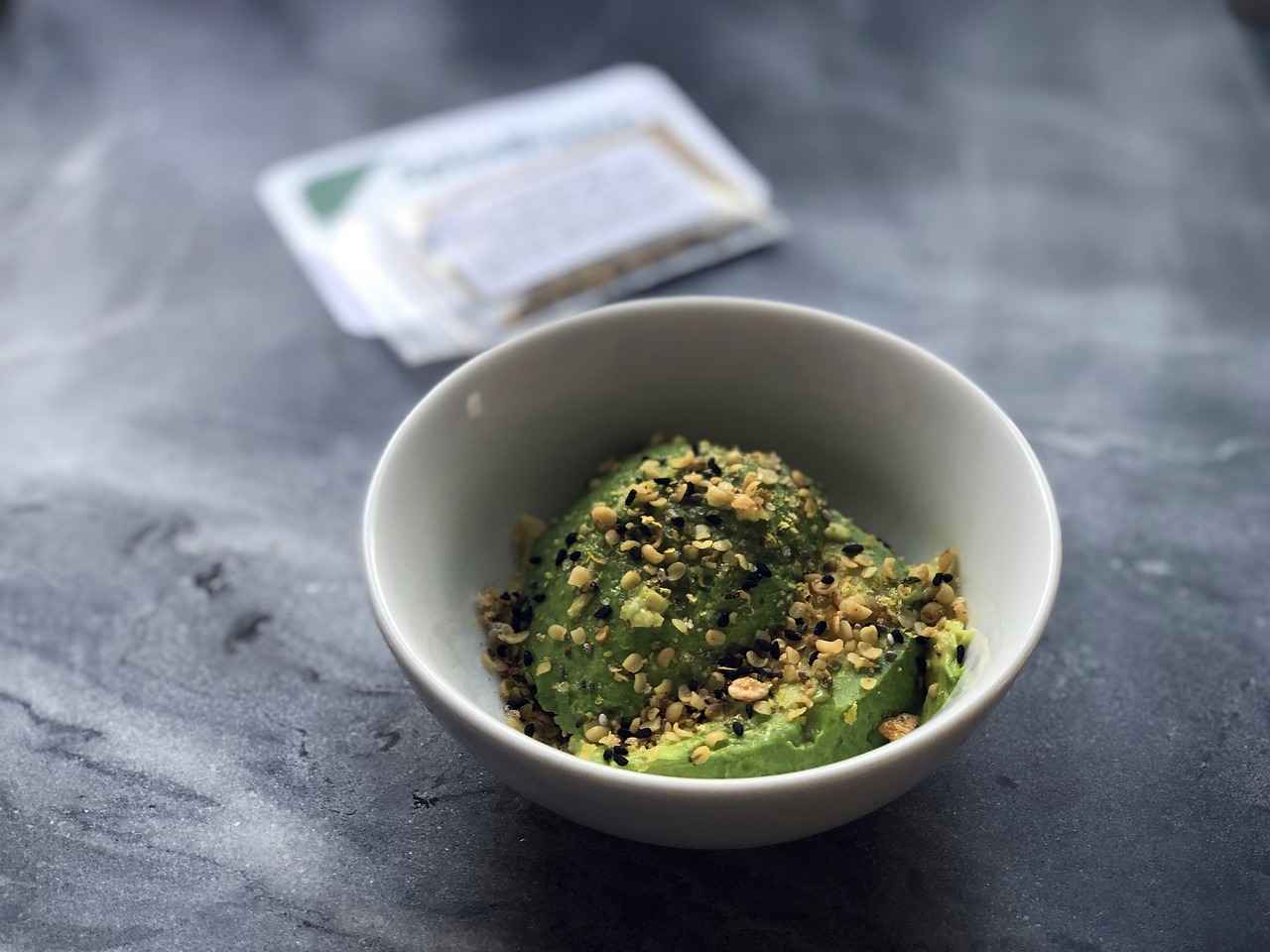
How to Incorporate Chia Seeds Safely?
Incorporating chia seeds into your diet can be a nutritionally enriching choice, given their high levels of omega-3 fatty acids, fiber, and essential minerals. However, it is crucial to understand how to do so safely to avoid potential side effects. This guide will provide you with practical insights on how to incorporate chia seeds into your diet effectively.
- Start Small: Begin with a small serving size of about 1 teaspoon to allow your body to adjust.
- Soak Before Consumption: Soaking chia seeds in water or other liquids for at least 30 minutes can help enhance nutrient absorption and reduce digestive discomfort.
- Mix with Foods: Incorporate chia seeds into smoothies, oatmeal, or yogurt for added texture and nutrition.
- Baking and Cooking: Use chia seeds as an ingredient in baked goods or as a thickening agent in soups and sauces.
Chia seeds can absorb up to 12 times their weight in water, which can lead to digestive issues if not consumed with sufficient fluids. Therefore, it is vital to drink plenty of water when incorporating chia seeds into your diet. This helps prevent gastrointestinal discomfort such as bloating or constipation.
The typical recommended serving size for chia seeds is about 1-2 tablespoons per day. This amount provides a good balance of nutrients while minimizing the risk of side effects. Consuming more than this may lead to digestive issues, especially for those not accustomed to high-fiber diets.
To maximize the benefits of chia seeds, consider the following tips:
- Combine with Healthy Fats: Pair chia seeds with sources of healthy fats, such as avocado or nuts, to enhance the absorption of fat-soluble vitamins.
- Use in Recipes: Incorporate chia seeds into recipes that include fruits and vegetables to increase overall nutrient intake.
- Experiment with Flavors: Add spices or natural sweeteners to chia seed puddings or smoothies to make them more palatable.
While chia seeds are safe for most people, certain individuals should exercise caution:
- Those with Allergies: If you have a history of allergies to seeds, consult a healthcare provider before adding chia seeds to your diet.
- Individuals with Gastrointestinal Disorders: People with conditions like IBS should start with smaller amounts and monitor their body’s response.
- Medication Interactions: If you are on medications, especially blood thinners or diabetes medications, discuss with your doctor to ensure chia seeds won’t interfere with your treatment.
Be aware of the following symptoms that may indicate overconsumption of chia seeds:
- Bloating: A common symptom that can occur if too many seeds are consumed without adequate hydration.
- Gas: Excessive fiber intake can lead to increased gas production in the digestive system.
- Constipation: Insufficient fluid intake alongside high fiber can result in constipation.
By following these guidelines, you can safely incorporate chia seeds into your diet, ensuring you enjoy their numerous health benefits without experiencing adverse effects. Always listen to your body and adjust your intake as needed.
What Are Recommended Serving Sizes?
When it comes to incorporating chia seeds into your diet, understanding the appropriate serving size is crucial for maximizing their health benefits while minimizing potential side effects. The typical recommended serving size for chia seeds is about 1-2 tablespoons per day. This quantity is generally considered safe and effective for most individuals, providing a good balance of nutrients without overwhelming the digestive system.
Chia seeds are packed with essential nutrients, including omega-3 fatty acids, fiber, and various vitamins and minerals. Consuming the recommended serving size can help you reap these benefits:
- High Fiber Content: Chia seeds are an excellent source of dietary fiber, which can aid in digestion and promote a feeling of fullness, making them a great addition to weight management strategies.
- Omega-3 Fatty Acids: These healthy fats are known for their heart-protective properties, helping to reduce inflammation and lower cholesterol levels.
- Antioxidants: Chia seeds contain antioxidants that help combat oxidative stress and may support overall health.
However, it’s important to note that exceeding the recommended serving size can lead to gastrointestinal discomfort, including bloating, gas, and even constipation. This is particularly true if you do not consume adequate water alongside chia seeds. When chia seeds absorb liquid, they expand significantly, which can cause discomfort if not properly hydrated.
To minimize the risk of digestive issues, consider the following tips:
- Start Small: If you’re new to chia seeds, begin with just 1 teaspoon and gradually increase your intake to the recommended serving size.
- Stay Hydrated: Drink plenty of water throughout the day, especially when consuming chia seeds. This helps ensure that the seeds can expand properly without causing digestive distress.
- Soaking Chia Seeds: Soaking chia seeds in water or other liquids before consumption can help reduce their potential for causing discomfort. This process allows the seeds to absorb liquid and become gel-like, making them easier to digest.
For those who are active or looking to increase their nutrient intake, chia seeds can be a versatile addition to smoothies, oatmeal, yogurt, or baked goods. Just remember to keep your servings within the recommended range to enjoy their benefits without adverse effects.
In summary, while chia seeds are a superfood with numerous health benefits, moderation is key. Sticking to the recommended serving size of 1-2 tablespoons per day can help you enjoy the positive effects of chia seeds while minimizing any potential digestive issues. Always listen to your body and adjust your intake as needed.
How to Prepare Chia Seeds for Consumption?
Chia seeds have gained immense popularity as a superfood due to their numerous health benefits. However, to maximize these benefits and minimize potential digestive discomfort, proper preparation is essential. One effective method is soaking chia seeds in water or other liquids before consumption. This practice not only enhances nutrient absorption but also helps mitigate the risk of digestive issues.
Soaking chia seeds allows them to absorb liquid, expanding in size and forming a gel-like consistency. This process is crucial for several reasons:
- Improved Digestibility: Soaking makes chia seeds easier to digest, reducing the likelihood of gastrointestinal discomfort such as bloating or gas.
- Nutrient Bioavailability: Soaked chia seeds release their nutrients more effectively, allowing for better absorption of vitamins, minerals, and healthy fats.
- Hydration: Consuming soaked chia seeds can contribute to your daily hydration needs, as they contain a significant amount of water.
Soaking chia seeds is simple and requires minimal effort. Here’s a step-by-step guide:
- Measure the Seeds: Start with a recommended serving size of 1-2 tablespoons of chia seeds.
- Choose Your Liquid: You can use water, almond milk, coconut milk, or any other liquid of your choice. The general ratio is 1 part chia seeds to 10 parts liquid.
- Mix and Wait: Combine the chia seeds and liquid in a bowl or jar, stirring well. Let the mixture sit for at least 30 minutes to allow the seeds to absorb the liquid. For best results, refrigerate it overnight.
Incorporating soaked chia seeds into your diet can provide several health benefits:
- Enhanced Satiety: The gel-like texture can promote a feeling of fullness, which may assist in weight management.
- Heart Health: Soaked chia seeds are rich in omega-3 fatty acids, which support cardiovascular health by reducing inflammation and lowering cholesterol levels.
- Rich in Antioxidants: Soaking does not diminish the antioxidant properties of chia seeds, allowing you to enjoy their full health benefits.
Once your chia seeds are soaked, there are numerous ways to incorporate them into your meals:
- Smoothies: Add soaked chia seeds to your favorite smoothie for an extra nutrient boost.
- Breakfast Bowls: Mix them into yogurt, oatmeal, or breakfast bowls for added texture and nutrition.
- Baking: Use soaked chia seeds as an egg substitute in vegan baking recipes.
While soaking chia seeds can enhance their benefits, it is essential to consume them mindfully:
- Start Small: If you are new to chia seeds, begin with a small amount to allow your digestive system to adjust.
- Stay Hydrated: Always drink plenty of water when consuming chia seeds, whether soaked or dry, to prevent any digestive discomfort.
- Consult a Professional: If you have pre-existing health conditions, consider discussing chia seed consumption with a healthcare provider.
In conclusion, soaking chia seeds is a straightforward yet effective method to enhance their nutritional benefits while minimizing potential side effects. By understanding how to prepare and incorporate them into your diet, you can enjoy all the advantages that these tiny seeds have to offer.

What Are the Nutritional Benefits of Chia Seeds?
Chia seeds have gained immense popularity as a superfood due to their remarkable nutritional profile. These tiny seeds, derived from the Salvia hispanica plant, are packed with essential nutrients that can contribute significantly to overall health.
Despite their potential side effects, chia seeds offer numerous nutritional benefits that make them a favored choice among health enthusiasts. Here are some of the key advantages:
- High Fiber Content: Chia seeds are an excellent source of dietary fiber, with around 10 grams in just two tablespoons. This high fiber content aids in digestion and helps maintain a healthy gut.
- Rich in Omega-3 Fatty Acids: These seeds are one of the richest plant sources of omega-3 fatty acids, particularly alpha-linolenic acid (ALA). Omega-3s are essential for heart health, reducing inflammation, and supporting brain function.
- Essential Minerals: Chia seeds are loaded with important minerals such as calcium, magnesium, and phosphorus. These minerals contribute to bone health, muscle function, and overall metabolic processes.
- Antioxidants: Chia seeds contain a variety of antioxidants that help combat oxidative stress in the body, potentially reducing the risk of chronic diseases.
The omega-3 fatty acids found in chia seeds are known to support heart health by:
- Reducing inflammation, which is a key factor in heart disease.
- Lowering cholesterol levels, promoting better cardiovascular health.
The high fiber content in chia seeds can promote a feeling of fullness, which may help individuals manage their weight more effectively. When consumed, chia seeds expand in the stomach, leading to increased satiety and reduced appetite.
Incorporating chia seeds into your diet is simple and versatile. Here are some practical tips:
- Add chia seeds to smoothies for an extra nutrient boost.
- Sprinkle them on salads or yogurt for added crunch and nutrition.
- Use chia seeds in baking recipes, such as muffins or bread, to enhance fiber content.
While chia seeds are generally safe for most people, it is important to consume them in moderation. Here are some precautions:
- Stay Hydrated: Due to their high fiber content, it is essential to drink plenty of water when consuming chia seeds to prevent digestive discomfort.
- Start Small: If you are new to chia seeds, start with a small amount and gradually increase your intake to allow your digestive system to adjust.
In conclusion, chia seeds are a nutrient-dense food that can provide numerous health benefits when consumed properly. Their high fiber content, omega-3 fatty acids, and essential minerals make them a valuable addition to a balanced diet. By being mindful of serving sizes and hydration, you can enjoy the many advantages that chia seeds have to offer.
How Do They Support Heart Health?
Chia seeds have gained immense popularity in recent years, especially among health enthusiasts and those seeking to improve their dietary habits. These tiny seeds, derived from the Salvia hispanica plant, are not only versatile but also packed with an array of nutrients. One of the most significant benefits of chia seeds lies in their high content of omega-3 fatty acids, which play a crucial role in supporting heart health.
Omega-3 fatty acids are essential fats that the body cannot produce on its own. They must be obtained through diet. These fats are known for their anti-inflammatory properties and their ability to promote overall cardiovascular wellness. Chia seeds are one of the richest plant-based sources of omega-3s, making them an excellent addition to a heart-healthy diet.
Studies indicate that omega-3 fatty acids can help lower levels of LDL cholesterol, often referred to as “bad” cholesterol. By incorporating chia seeds into your diet, you may experience a reduction in overall cholesterol levels. This is particularly beneficial for individuals at risk of heart disease. The soluble fiber found in chia seeds also aids in cholesterol management by binding to cholesterol in the digestive system and helping to eliminate it from the body.
Chronic inflammation is a significant contributor to various heart-related issues, including atherosclerosis. The omega-3 fatty acids in chia seeds have been shown to possess anti-inflammatory properties, which can help reduce the risk of heart disease. By lowering inflammation, chia seeds can promote better blood flow and overall heart function, making them a valuable addition to a heart-healthy diet.
High blood pressure is a major risk factor for cardiovascular diseases. Incorporating chia seeds into your diet may help maintain healthy blood pressure levels. The seeds are rich in potassium, a mineral that helps regulate blood pressure by balancing out the negative effects of sodium. This balance is crucial for maintaining optimal heart health.
To reap the heart health benefits of chia seeds, it’s generally recommended to consume about 1-2 tablespoons per day. This amount provides an adequate supply of omega-3 fatty acids and other vital nutrients without overwhelming the digestive system. It’s essential to incorporate chia seeds gradually into your diet, especially if you’re not used to consuming high-fiber foods.
- Soaked in Water or Juice: Soaking chia seeds in water or juice before consumption can enhance their nutrient absorption and make them easier to digest.
- Add to Smoothies: Blending chia seeds into smoothies is a delicious way to incorporate them into your diet.
- Sprinkle on Salads: Adding chia seeds to salads can provide a crunchy texture and boost nutritional value.
- Baking: Chia seeds can be added to baked goods, such as muffins or bread, for added nutrition.
While chia seeds offer numerous health benefits, it’s essential to be aware of potential side effects, especially if consumed in large quantities. Some individuals may experience digestive discomfort, such as bloating or gas. Therefore, starting with small amounts and gradually increasing your intake is advisable. Additionally, those on blood-thinning medications should consult with a healthcare professional before adding chia seeds to their diet.
In summary, chia seeds are a powerhouse of nutrients, particularly omega-3 fatty acids, which support heart health by reducing inflammation and lowering cholesterol levels. By incorporating chia seeds into your daily routine, you can take significant steps toward improving your overall cardiovascular health.
Can They Aid in Weight Management?
Chia seeds have gained popularity as a superfood due to their numerous health benefits, particularly in the realm of weight management. One of the key attributes of chia seeds is their remarkably high fiber content, which plays a significant role in promoting feelings of fullness and satiety. This article delves deeper into how chia seeds can aid in weight management and the science behind their effects.
The primary reason chia seeds are effective for weight management lies in their high fiber content. A single ounce (about 28 grams) of chia seeds contains approximately 11 grams of fiber. This fiber is mostly soluble, which means it absorbs water and expands in the stomach, creating a gel-like substance. This process helps to increase satiety and can lead to reduced overall calorie intake.
When chia seeds are consumed, they can absorb up to 12 times their weight in water. This expansion in the stomach not only slows down the digestion process but also triggers the release of hormones that signal fullness to the brain. As a result, individuals may feel satisfied with smaller portion sizes, which can ultimately aid in weight loss efforts.
It is essential to stay adequately hydrated when consuming chia seeds. Since they absorb a significant amount of water, failing to drink enough fluids can lead to digestive discomfort. Therefore, pairing chia seeds with sufficient liquid can enhance their weight management benefits while minimizing potential side effects.
In addition to promoting satiety, chia seeds may also help control appetite. The fiber content can slow the absorption of sugar in the bloodstream, which helps stabilize blood sugar levels. Stable blood sugar can prevent sudden cravings and the urge to snack between meals, making it easier to stick to a healthy eating plan.
- Start Small: Begin with 1 tablespoon of chia seeds daily and gradually increase the amount.
- Add to Smoothies: Blend chia seeds into smoothies for added texture and nutrition.
- Top Your Meals: Sprinkle chia seeds on salads, yogurt, or oatmeal for an extra crunch.
- Make Chia Pudding: Combine chia seeds with your choice of milk and let it sit overnight to create a delicious pudding.
While chia seeds offer various benefits, it’s important to consume them in moderation. Overconsumption can lead to gastrointestinal issues such as bloating or gas, especially if not paired with enough water. Additionally, individuals with certain medical conditions or those on specific medications should consult with a healthcare professional before adding chia seeds to their diet.
Incorporating chia seeds into your diet not only aids in weight management but also provides long-term health benefits. Their rich nutrient profile, including omega-3 fatty acids and antioxidants, supports overall health and wellness. Regular consumption can contribute to better heart health, improved digestion, and enhanced metabolic function.
In conclusion, chia seeds can be a valuable addition to a weight management plan due to their high fiber content and ability to promote satiety. By understanding how to incorporate them effectively and being mindful of potential risks, individuals can enjoy the benefits of chia seeds while working towards their weight loss goals.

What Are Alternative Seeds to Consider?
When exploring the world of seeds, chia seeds often take the spotlight due to their impressive nutritional profile. However, not everyone can enjoy their benefits without experiencing adverse effects. If you find yourself facing discomfort after consuming chia seeds, it’s essential to know that there are alternative seeds available that can provide similar health benefits without the associated risks.
Many people seek nutritious seeds as part of their diet, and fortunately, there are several alternatives to chia seeds that can be just as beneficial. Here are some options:
- Flaxseeds: Flaxseeds are a fantastic alternative to chia seeds. They are rich in omega-3 fatty acids, just like chia seeds, and are an excellent source of dietary fiber. Flaxseeds are known to support heart health and improve digestive function. Additionally, they can be ground to enhance nutrient absorption.
- Pumpkin Seeds: Also known as pepitas, pumpkin seeds are packed with protein, healthy fats, and essential minerals such as magnesium and zinc. They are a great source of antioxidants and can help promote heart health. Moreover, they are typically easier to digest than chia seeds, making them suitable for those with sensitive stomachs.
- Hemp Seeds: Hemp seeds are another nutrient-dense option, offering a balanced ratio of omega-3 and omega-6 fatty acids. They are also a complete protein source, providing all nine essential amino acids. These seeds are versatile and can be sprinkled on salads, blended into smoothies, or added to baked goods.
- Sunflower Seeds: Sunflower seeds are not only delicious but also rich in vitamin E, magnesium, and selenium. They are known for their anti-inflammatory properties and can help improve heart health. Sunflower seeds can be eaten raw, roasted, or added to various dishes for a nutritious boost.
When considering alternatives to chia seeds, it’s important to evaluate their nutritional profiles. Here’s a quick comparison:
| Seed Type | Omega-3 Content (per 100g) | Fiber (per 100g) | Protein (per 100g) |
|---|---|---|---|
| Chia Seeds | 17g | 34g | 17g |
| Flaxseeds | 22g | 27g | 18g |
| Pumpkin Seeds | 0.1g | 18g | 30g |
| Hemp Seeds | 9g | 4g | 33g |
| Sunflower Seeds | 0.1g | 8g | 21g |
As illustrated in the table, while chia seeds are high in omega-3 fatty acids and fiber, other seeds like flaxseeds and hemp seeds also offer substantial nutritional benefits. This variety allows individuals to choose seeds that best fit their dietary needs and preferences.
When selecting seeds, consider your dietary requirements, any allergies, and how you plan to incorporate them into your meals. For example, if you are looking for a seed high in protein, hemp or pumpkin seeds may be your best choice. If you need a fiber boost, flaxseeds might be more suitable. Always ensure to consume seeds in moderation and stay hydrated, especially if they are high in fiber.
In conclusion, while chia seeds are a popular superfood, they may not be suitable for everyone. Exploring alternative seeds like flaxseeds, pumpkin seeds, hemp seeds, and sunflower seeds can provide similar nutritional benefits without the adverse effects. By understanding the unique properties of each seed, you can make informed dietary choices that align with your health goals.
What Are the Benefits of Flaxseeds?
Flaxseeds, derived from the flax plant, are small, brown or golden seeds that pack a powerful nutritional punch. They have gained recognition as a superfood due to their high content of essential nutrients, particularly omega-3 fatty acids and dietary fiber. Understanding the benefits of flaxseeds can help you incorporate them into your diet effectively.
Flaxseeds are an excellent choice for anyone looking to enhance their diet with nutrient-dense foods. They are particularly known for their high levels of alpha-linolenic acid (ALA), a type of omega-3 fatty acid that plays a crucial role in heart health. Additionally, flaxseeds are rich in lignans, which have antioxidant properties and may contribute to hormonal balance.
The fiber content in flaxseeds is substantial, with both soluble and insoluble fibers that aid in digestion. Soluble fiber helps to regulate blood sugar levels and lowers cholesterol, while insoluble fiber promotes regular bowel movements. This dual action makes flaxseeds a great addition to any diet, especially for those seeking to improve their digestive health.
Research suggests that omega-3 fatty acids found in flaxseeds can significantly reduce the risk of heart disease. Regular consumption of flaxseeds may help lower blood pressure, reduce inflammation, and improve cholesterol levels. Incorporating flaxseeds into your daily routine can be a heart-healthy choice.
The high fiber content in flaxseeds can also assist in weight management. Fiber promotes a feeling of fullness, which can reduce overall calorie intake. By adding flaxseeds to meals, individuals may find it easier to manage their weight while still feeling satisfied.
When considering alternatives to chia seeds, flaxseeds stand out due to their nutritional profile. While both seeds are rich in omega-3 fatty acids and fiber, flaxseeds are often easier to digest for many individuals. This makes them a suitable option for those who may experience digestive discomfort with chia seeds.
- Ground Flaxseeds: Grinding flaxseeds enhances nutrient absorption. Add ground flaxseeds to smoothies, oatmeal, or yogurt.
- Baking: Substitute ground flaxseeds for flour in baking recipes to boost nutrition.
- Flaxseed Oil: Use flaxseed oil as a salad dressing or drizzle it over cooked vegetables for added health benefits.
While flaxseeds are generally safe for most individuals, consuming them in large quantities may lead to digestive issues such as bloating or gas. It is advisable to start with small amounts and gradually increase intake while ensuring adequate hydration.
Individuals with certain health conditions, such as hormone-sensitive cancers, should consult a healthcare professional before adding flaxseeds to their diet. Additionally, those on blood-thinning medications should seek advice, as flaxseeds can interact with these drugs.
How Do Pumpkin Seeds Compare?
Pumpkin seeds, often referred to as pepitas, are not only a delicious snack but also a powerhouse of nutrition. These seeds are packed with a variety of essential nutrients, making them a fantastic addition to a balanced diet. Let’s delve into the numerous benefits of pumpkin seeds and see how they compare to other seeds, particularly chia seeds.
Pumpkin seeds are rich in protein, healthy fats, and a plethora of essential minerals. A typical serving of pumpkin seeds (about 1 ounce or 28 grams) contains:
- 7 grams of protein – making them an excellent plant-based protein source.
- Healthy fats – including omega-3 and omega-6 fatty acids that support heart health.
- Magnesium – crucial for muscle and nerve function, as well as energy production.
- Zinc – important for immune function and skin health.
- Iron – essential for transporting oxygen in the blood.
The healthy fats found in pumpkin seeds contribute significantly to heart health. These seeds contain omega-3 fatty acids that help reduce inflammation and lower cholesterol levels. Regular consumption of pumpkin seeds can also help regulate blood pressure, making them a heart-friendly snack.
Due to their high protein and fiber content, pumpkin seeds can promote a sense of fullness, which may aid in weight management. Including these seeds in your diet can help curb cravings and reduce the likelihood of overeating.
While both pumpkin seeds and chia seeds offer impressive health benefits, they serve different nutritional roles. Here’s a comparison:
| Nutrient | Pumpkin Seeds | Chia Seeds |
|---|---|---|
| Protein | 7 grams per ounce | 5 grams per ounce |
| Omega-3 Fatty Acids | Less than 1 gram | 5 grams per ounce |
| Fiber | 1 gram per ounce | 11 grams per ounce |
| Magnesium | 150 mg | 95 mg |
As seen in the table, pumpkin seeds are higher in protein and magnesium, while chia seeds excel in fiber and omega-3 fatty acids. This makes them suitable for different dietary needs and preferences.
Pumpkin seeds are incredibly versatile in the kitchen. They can be enjoyed:
- Roasted and salted as a snack.
- Sprinkled on salads for added crunch.
- Blended into smoothies for a nutritional boost.
- Incorporated into baked goods like bread and muffins.
Generally, pumpkin seeds are safe for most individuals. However, those with specific allergies should exercise caution. It’s also essential to consume them in moderation, as they are calorie-dense.
Frequently Asked Questions
- What are the potential side effects of chia seeds?
Chia seeds can cause digestive issues like bloating, gas, or constipation, especially if consumed in large quantities without adequate hydration. It’s essential to start with small amounts and gradually increase your intake.
- Can chia seeds cause allergic reactions?
Yes, though rare, some individuals may be allergic to chia seeds. Symptoms can include itching, hives, or gastrointestinal distress. If you notice these signs, it’s crucial to stop using them and consult a healthcare professional.
- Who should avoid chia seeds?
People with gastrointestinal disorders, such as IBS, or those on blood-thinning medications should be cautious with chia seeds. Pregnant or nursing women should also consult their healthcare provider before adding them to their diet.
- How do chia seeds interact with medications?
Chia seeds may alter the effects of medications, particularly those that affect blood sugar or blood clotting. Always discuss any dietary changes with your healthcare provider if you are on medication.
- What is the recommended serving size for chia seeds?
The typical recommended serving size is about 1-2 tablespoons per day. This amount can provide health benefits while minimizing the risk of side effects.
- What are some alternatives to chia seeds?
If chia seeds don’t agree with you, consider flaxseeds or pumpkin seeds. Both offer similar nutritional benefits without the digestive discomfort that some may experience with chia seeds.




